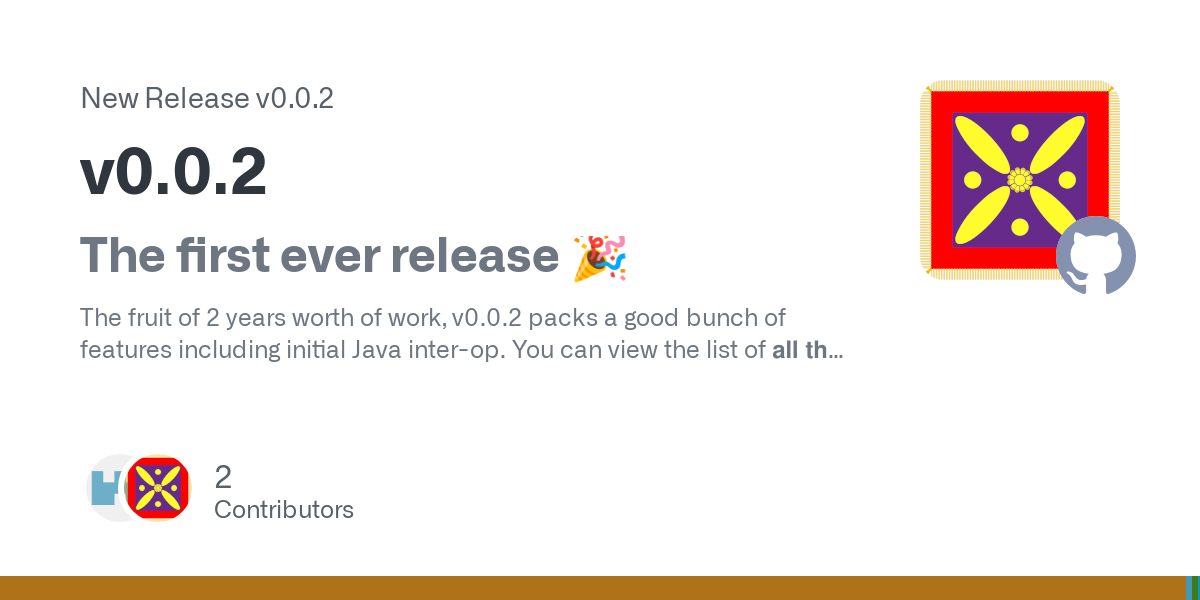- cross-posted to:
- programming@lemmy.ml
- forth@lemmy.ml
- cross-posted to:
- programming@lemmy.ml
- forth@lemmy.ml
cross-posted from: https://lemmy.ml/post/23785552
After nearly 2 years of work, I’m excited to release the first version of bjForth, featuring partial JONESFORTH compatibility and initial Java interop.
Grab it and start hacking: https://github.com/bahmanm/bjforth/releases/tag/v0.0.2
PS: bjForth is a Forth (indirect threaded) written entirely in Java and its execution model is influenced by that of JONESFORTH.




Traditionally Forth is implemented completely in Forth. Jonesforth is kind of non-traditional in that sense, because it is in assembler.
That’s impossible unless you’ve got a Forth machine.
Where the OS native API is accessible via C API, you’re bound to write, using C/C++/Rust/etc, a small bootstrap programme to then write your Forth on top of. That’s essentially what bjForth is at the moment: the bootstrap using JVM native API.
Currently I’m working on a set of libraries to augment the 80-something words bjForth bootstrap provides. These libraries will be, as you suggested, written in Forth not Java because they can tap into the power of JVM via the abstraction API that bootstrap primitives provide.
Hope this makes sense.
You start with a working Forth and then bootstrap, sort of like writing a C compiler in C. There is an additional trick that Forth calls metacompilation (note, that term has a different meaning outside of the Forth world). See: https://www.bradrodriguez.com/papers/moving4.htm
That’s definitely an interesting idea. Thanks for sharing.
Though it means that someone down the line must have written a bootstrap programme with C/Assembler to run the host forth.
In case of jbForth, I decided to write the bootstrap too.
Check this out, it is amazing: https://github.com/nineties/planckforth
Whoa! This is pretty rad! Thanks for sharing!